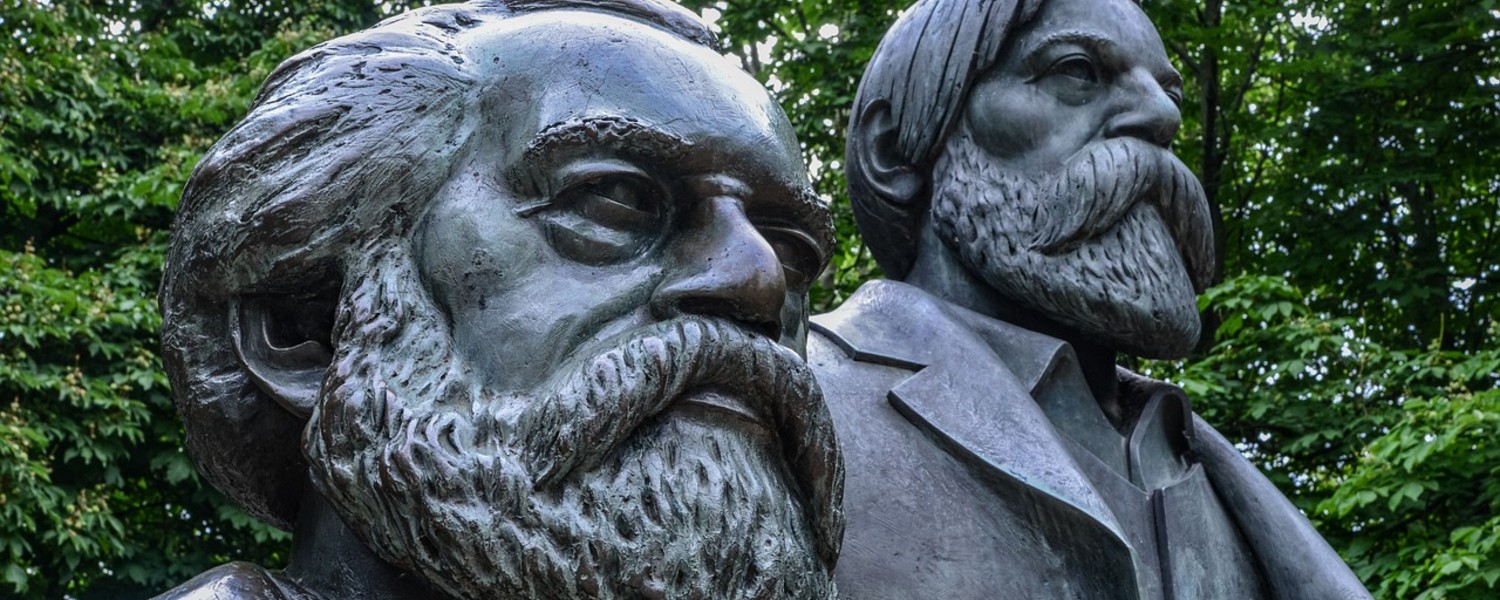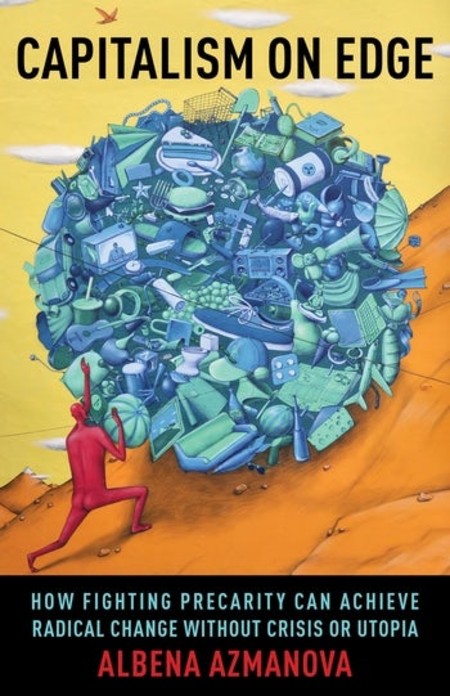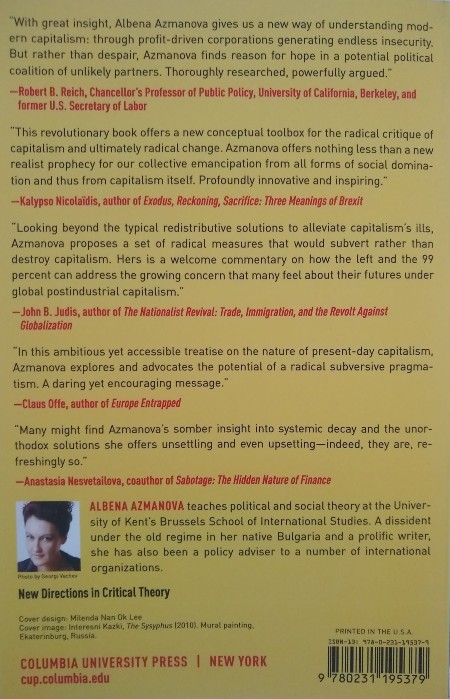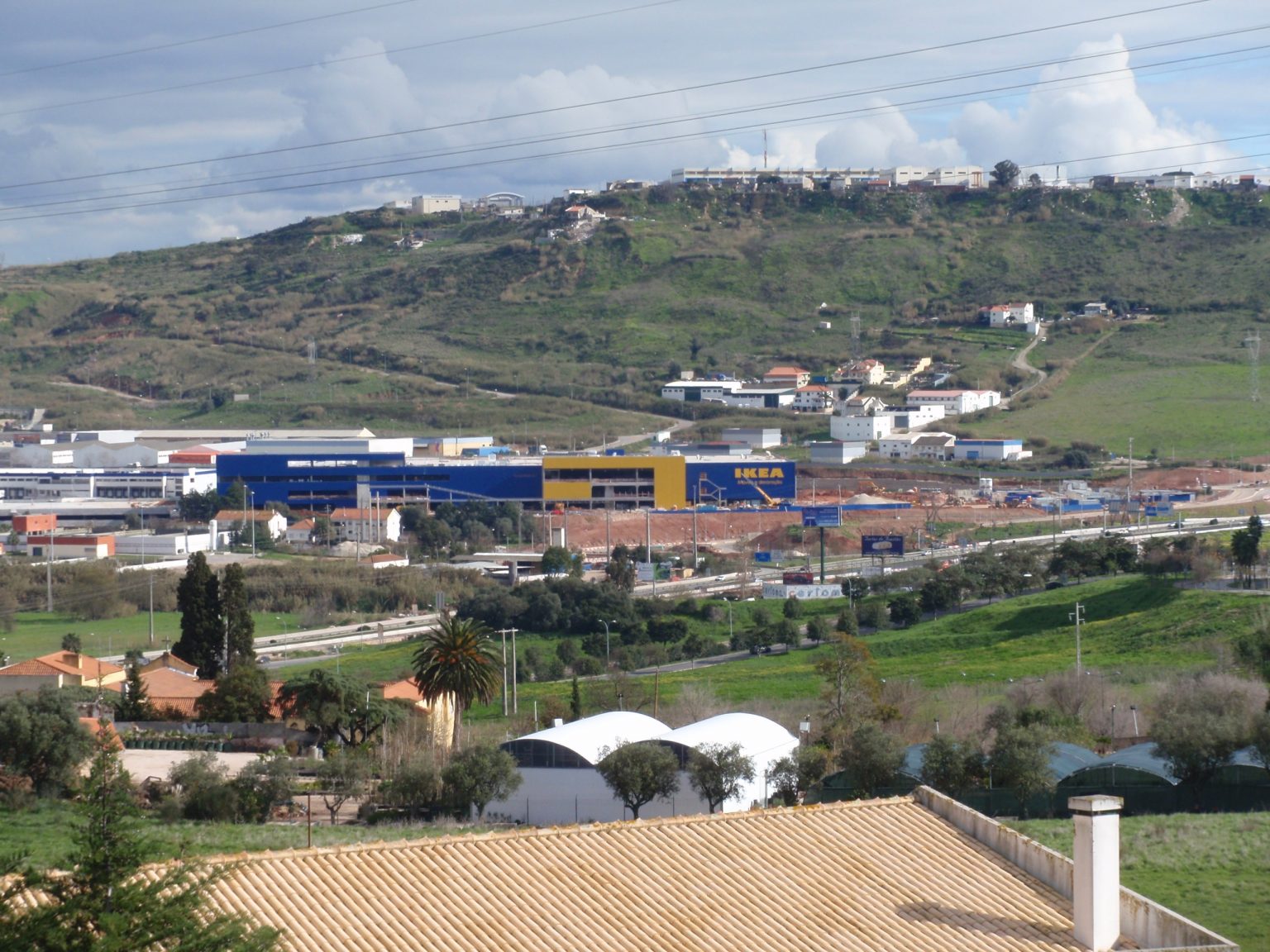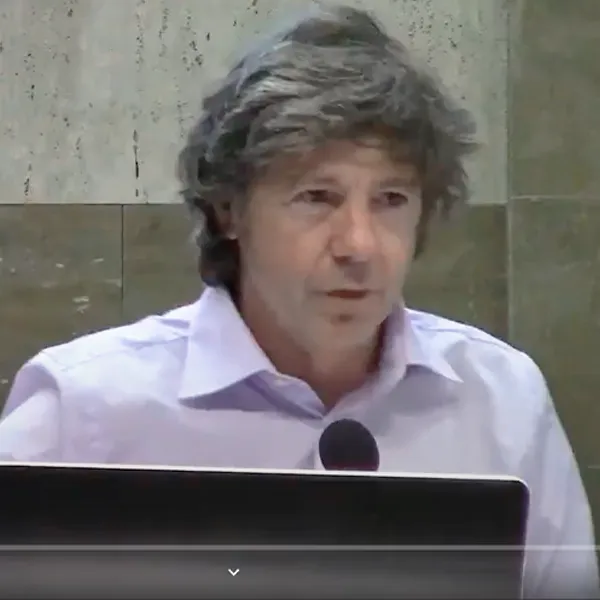”In the past decade, social protest has been widespread, witty, and …weak.” That is the beginning of the article ”Anti-Capital for the 21st Century (on the metacrisis of capitalism and the prospects for radical politics)” by the British political thinker of Bulgarian origins Albena Azmanova. Azmanova has emerged as one of the original voices in Western thought on capitalism and criticism from the left. Her analysis deals with a number of issues relating to contemporary political economy and contains multiple theses which often sound unconventional for the broad Western left-wing consensus. She has recently challenged long-held notions of left-wing rhetoric, e.g. arguing in The Financial Times that precarity and not inequality is what worries the 99%. While neoliberalism has been in a zombie state after the 2007-2008 economic crisis, the left has stirred up hope, but in reality did little to tame or overcome the capitalist demons that haunt our times. With the intent to contribute to the search for solutions to today’s political and economic impasse, The Barricade has received the right to write a short note on the article, while its publisher Sage Publishing Ltd., England, has allowed universal free access to Azmanova’s contribution.
One of the principal ideas of Azmanova’s article is that democracy — much cherished by left-wing popular movements — in fact, strengthens the capital-labour alliance which has been advocating for policies of national competitiveness and which has supported the neoliberal hegemony. The far-right has emerged as the expression of the democratic vote’s resistance to the neoliberal policies of the times before the world crisis of 2007-2008, but it doesn’t pose a serious challenge to neoliberalism. As Azmanova notes: “The far-right transforms the conflict between capital’s imperatives for growth and society’s imperative for integration into a conflict between ‘our’ national capitalism (i.e. “our jobs”, “our growth”) and ‘their’ global capitalism. These economic tensions are further politicised and expressed culturally (such as the fear of immigrants who deprive ‘us’ of ‘our jobs’ while eroding our cultural cohesion) into a novel phenomenon I have termed economic xenophobia.” So instead of saving us from capitalism’s most nefarious effects, democratic politics reenact capitalism’s logic.
How can capitalism be overcome then, if not through people’s empowerment through civic action and the ballot box? Azmanova observes that a new divide has recently emerged: one that reflects conflicting attitudes between those who favour opportunity (freedom) and see inherent progressiveness in the new technological and open border economy, and those who fear the risk associated with these opportunities because they may suffer the potential loss of their livelihoods, of their physical security, and cultural disruption. The latter grouping of people tout security but neither of these two options promote powerful utopias which could launch us into a new socio-economic order.
Azmanova’s book “Capitalism on Edge” presents a lot of her original thought and has been praised by the eminent U.S. economist and former U.S. Secretary of Labour Robert Reich (photo: Albena Azmanova)
Azmanova contends, in her recent book Capitalism on Edge, that we stand at a very peculiar historical junction when a broad coalition of forces is gathering, uniting the visible antagonists in a movement able to overturn capitalism without the help of a crisis, revolution, or utopias. For the first time, she observes, the competitive pressures of capitalism are having a tangible negative impact also on the purported winners from the unequal distribution of wealth. Caught in the ‘always-on economy’ they suffer from the massive precarity which the competitive pressures of globally integrated capitalism exert on almost all, paying the high price of damaged mental health, poor work-life balance, and an ailing environment. At the same time, the former working classes have become property owners: owning equity in publicly-listed companies has become not only broadly accessible but even “ubiquitous and unavoidable”, Azmanova writes. However, this leads to the universalization of the competitive pursuit of profit and to social precarity that is the illness of the 99%. Thus, an alliance against the very constitutive logic of capitalism — the competitive production of profit — becomes possible.
The path of emancipation, however, is not a socialist revolution and the expropriation of private property, but what she calls ‘subverting capitalism from within’ by fighting its very constitutive dynamic — the competitive pursuit of profit. Institutions of capitalism such as property ownership and job tenure can enable this process. The cumulation of mundane practices and policies that go against the profit motive such as universal basic income, job sharing and public investment in scientific research, Azmanova claims, will allow us to exit capitalism – quietly, confidently, irreversibly.
“Opposing the operative dynamic of capitalism (profit production) rather than dismantling its structuring institutions (private property) is both a more radical course of action and a more realistic programme for transformative politics, one that is best suited to the exigencies of our historical moment”, concludes Azmanova.
The Barricade is an independent platform, which is supported financially by its readers. Become one of them! If you have enjoyed reading this article, support The Barricade’s existence! We need you! See how you can help – here!








